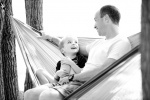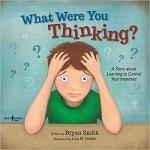How To Respond Instead Of React
April 13, 2019
Quote of the Week
"The child begins to perceive the world not only through his eyes, but also through his speech" -- Lev Vygotsky
Mindful Parenting: How To Respond Instead Of React
 "Our bodies and brains are wired to react to high stress situations as a safety net. If our brain perceives a threat, it signals the amygdala, the body’s “alarm” system, which tells our body to act without thinking. The amygdala responds to situations with the fight, flight, or freeze response. This is to protect us, but our stress receptors cannot distinguish between real dangers or false dangers. In everyday parenting, our stress response often gets triggered unnecessarily by events that are not actually life threatening. Our bodies are reacting to our kid spilling cereal all over the floor in the same way we would react if we were being chased by a bear.
"Our bodies and brains are wired to react to high stress situations as a safety net. If our brain perceives a threat, it signals the amygdala, the body’s “alarm” system, which tells our body to act without thinking. The amygdala responds to situations with the fight, flight, or freeze response. This is to protect us, but our stress receptors cannot distinguish between real dangers or false dangers. In everyday parenting, our stress response often gets triggered unnecessarily by events that are not actually life threatening. Our bodies are reacting to our kid spilling cereal all over the floor in the same way we would react if we were being chased by a bear.
Depending on your childhood experiences and memories, your stress response may be triggered more easily than another person. When our stress receptors are triggered, we have difficulty thinking clearly and being attentive to people around us. We are unable to be thoughtful in our responses, and have trouble staying focused, and our ability to solve problems is diminished." [read more]
Reading Corner
 Title: What Were You Thinking?
Title: What Were You Thinking?
By: Bryan Smith
Ages: 4-8
"Third-grader Braden loves to be the center of attention. His comic genius, as he sees it, causes his friends to look at him in awe. But some poor decision-making, like ill-timed jokes in class and an impulsive reaction during gym that left a classmate teary-eyed and crumpled on the floor, forces the adults in Braden's life to teach him about impulse control. But will the lessons shared by his teachers and his mom really help Braden manage his impulses? Find out in this hilarious story by Bryan Smith." -- Publishers
Be the Change
Based on the article, take the time to reflect on how your parenting journey has been borrowed from your childhood experiences. Observe those micro minute moments of impulses that arise within you or in your child and reflect on how you transformed them? How has your own parenting journey brought in a pause towards responding instead of reacting towards a pleasant or unpleasant situation with your child?





